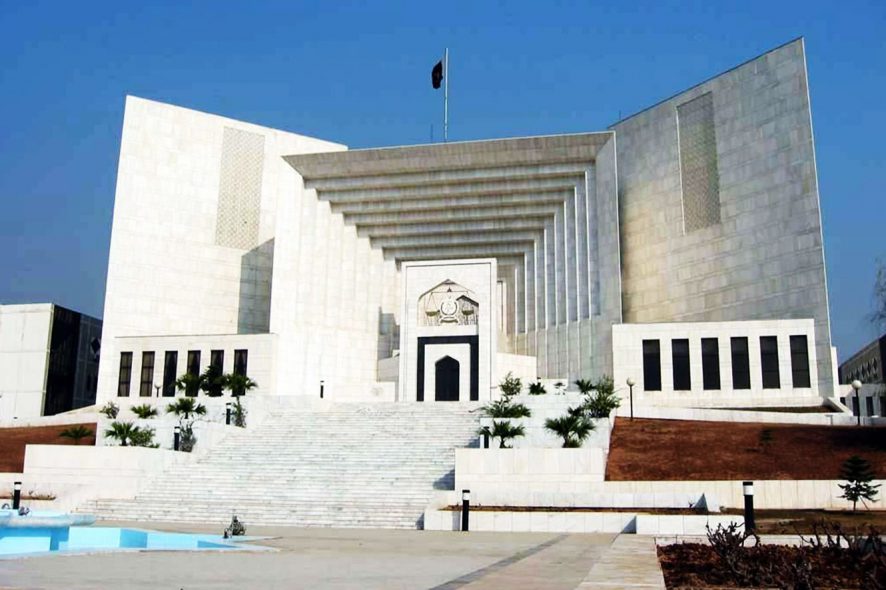Supreme Court of Pakistan: While deciding 16 petitions filed by civilians who had been convicted for terror related activities and had been given death sentence by the Field General Court Martial, a five judge bench comprising of Anwar Zaheer Jamali, C.J., Amir Hani Muslim, Azmat Saeed, Manzoor Ahmad Malik and Faizal Arab, JJ., upheld the death sentences observing that the petitioners could not prove that the trials by the FGCM were malafide with a collateral purpose.
In the instant case, the 16 petitioners were convicted by the Military Court (which was setup in the aftermath of the ghastly attack on a school in Peshawar) for conducting terrorist activities and threatening the security of Pakistan and attacking the military officers. The petitioners however contended that they have been subjected to secret trials without any legal assistance and that they have been deprived of the right to be represented by a lawyer of their own choice in violation of rights so guaranteed by Articles 10 and 10A of the Constitution of the Islamic Republic of Pakistan, 1973. On the contrary the respondents argued that each and every convict was given full opportunity to defend themselves. The option to engage a lawyer of their own choice was afforded and upon failure to take advantage of such option an Officer was deputed to defend them in terms of the Pakistan Army Act Rules, 1954.
Perusing the contentions, the Bench referred to the landmark decision of the Supreme Court of India in ADM Jabalpur v. Shivakant Shukla, (1977) 1 SCC 834, where it was observed that “between malice in fact and malice in law there is a broad distinction which is not peculiar to any particular system of jurisprudence.” The Court further observed that the records clearly suggest that the FGCM was convened as per the provisions of the Pakistan Army Act and Rules, and the petitioners were unable to prove any kind of irregularity in this respect. It was further observed that the extraordinary circumstances which necessitated the institution of the FGCM, the act committed by the petitioners in the instant case clearly comes under the jurisdiction of the FGCM. [Said Zaman Khan v. Federation of Pakistan, 2016 SCC OnLine Pak SC 2 , decided on August 30, 2016]



